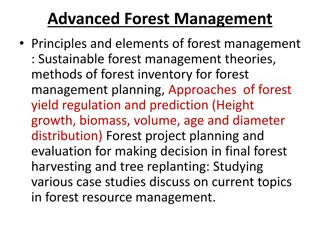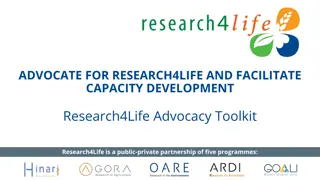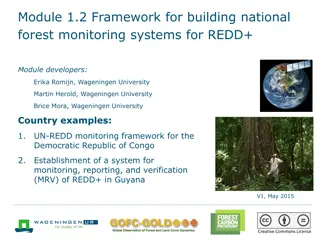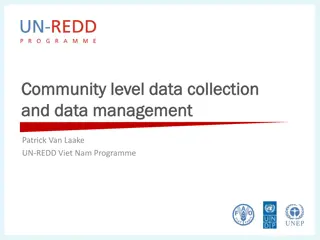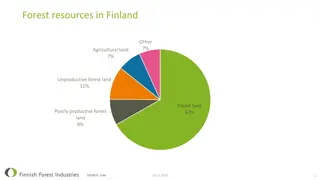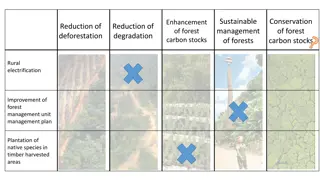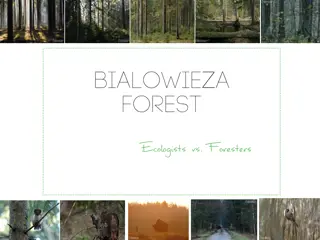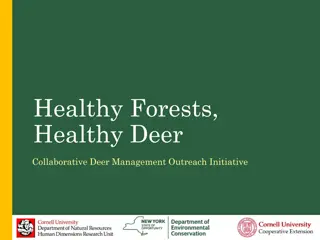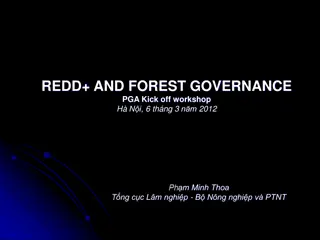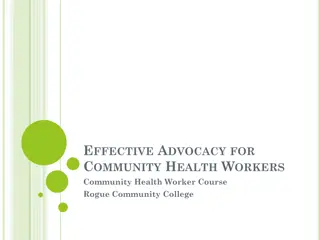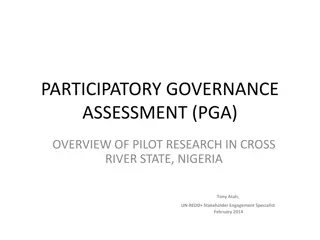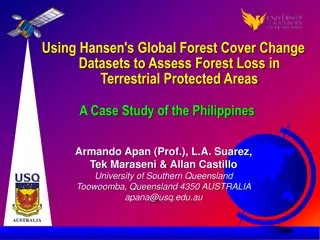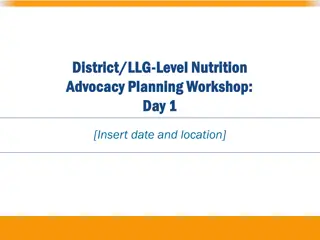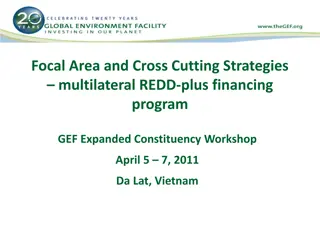Governance and Advocacy Priorities in Forest Management
Focusing on developing monitoring systems for governance improvements within the FLEGT and REDD+ frameworks. Enumerating governance and advocacy priorities such as access to information, participation, equity in benefit sharing, and community empowerment in Ghana and Cameroon.
Download Presentation

Please find below an Image/Link to download the presentation.
The content on the website is provided AS IS for your information and personal use only. It may not be sold, licensed, or shared on other websites without obtaining consent from the author. Download presentation by click this link. If you encounter any issues during the download, it is possible that the publisher has removed the file from their server.
E N D
Presentation Transcript
What problem are we trying to solve? FLEGT has put considerable emphasis on the legality assurance system and wood-tracking. We want to focus on developing a tool to monitor governance improvements . So we will develop monitoring systems that focus on our governance priorities . These will feed into national FLEGT and REDD+ monitoring systems.
Concentric rings of monitoring FLEGT Development Forest Governance Legality Assurance System Independent Audit Civil society-led Monitoring VPA Impact Monitoring
Whats the difference from IFM? Indicator-based Iterative: repeat the same assessments to observe change. Could be conducted by anyone (and may be absorbed into other FLEGT or REDD+ processes). Case studies or missions . Open-ended, investigatory, no two reports the same. Clear rationale for maintaining independence. Advocacy-driven monitoring
What are our governance priorities? Access to information Participation (in policy formulation and implementation) Equity in benefit sharing Rights, to trees, forests and land A wide concept, related to Transparency Participation Coordination Capacity Accountability
What are our advocacy priorities? Ghana Greater FC transparency Ghana s VPA Transparency List is complied with. Informed communities access information that affects their natural resource base Stronger participation and clearer consent in forest management decisions Access by communities to information on logging on REDD+ projects on large land investments Availability and functionality of decision making platforms at the community level Quality of consent in the decisions on logging. on REDD+ projects operations. on large land investments. Improved equity and fairness in benefit sharing from Forest Resources Revenue collection by the Forestry Commission District assembly use of royalties Compliance with Social Responsibility Agreements and compensation
What are our advocacy priorities? Cameroon Improved access to information and projects Community access to information on REDD+ process to information on social agreements to information on benefit sharing to information on land investments Fair and transparent benefit sharing mechanism Community participation in the negotiations, implementation and monitoring of social agreements Compliance of social agreements with legal and contractual requirements Management by Municipalities of forest and land revenue for communities Monitoring compliance with social obligations by the administration
What are our advocacy priorities? Liberia Access to information Forest communities access to information on social agreement on community benefits from forest operations ... about REDD+ risks and benefits Liberia s VPA Transparency Annex is complied with Benefits redistribution Community participation in the negotiations, implementation and monitoring of social agreement implementation Compliance of social agreements with legal and contractual requirements Management by counties of forest and land revenue for communities Monitoring by the government agencies of compliance with all social obligations Consistency in benefit redistribution systems across logging, agriculture, and REDD+ sectors
How do we do it? Methodology includes: Freedom of Information requests Building social SIGIF Social Audit (e.g. Liberia 2013) Working with local communities/CBOs Desk analysis of social agreements Semi-structured interviews Focus group discussions Direct observation Multi-stakeholder meetings Consultancies Reaction Action Outputs Methodology Indicator
Reflections so far Still at system design stage, no results yet. Already contributing to greater attention on social outcomes of FLEGT. Has focused our mind on the changes we want to see. Monitoring system = databases, live monitoring? Need to work more at integration with other FLEGT REDD+ monitoring plans and systems. Four-country study on social obligations planned.




